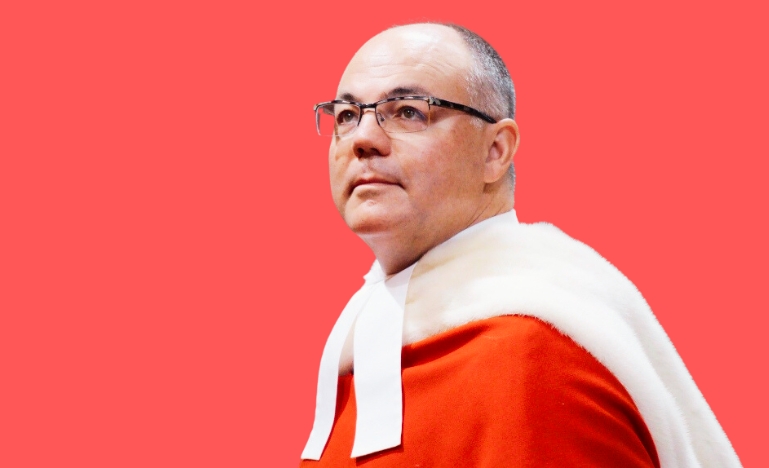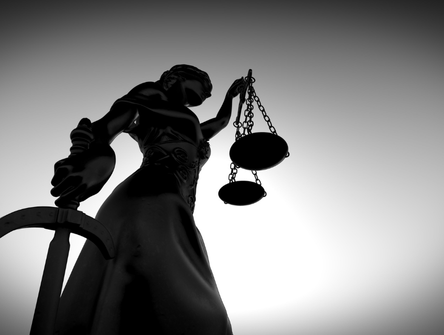Replacing Justice Russell Brown
The puisne justice's resignation creates several gaps in the court's expertise.

Courtwatchers say that Justice Russell Brown's sudden resignation this week creates a void in the court's expertise in private law and constitutional matters, particularly concerning the separation of powers.
In announcing his resignation, Brown cited the investigative process conducted by the Canadian Judicial Council's committee on judicial conduct, stemming from an incident involving Brown in Arizona. The investigation would likely have extended into next year. Since the court had already conducted its spring session without a full roster in his absence, Brown suggested it would be faster to appoint a new justice rather than let the court go another year at reduced strength.
"While my counsel and I are confident that the complaint would have ultimately been dismissed, the continuing delay is in nobody's interests – the Court's, the public's, my family's or my own," Brown wrote in a public statement. "I have therefore decided that the common good is best served by my retirement, so that a replacement judge can join the Court in time for its busy Fall term."
Concerns have also been raised about the court's lack of expertise in criminal matters following Justice Michael Moldaver's retirement last year.
According to University of Waterloo professor Emmett Macfarlane, who studies the SCC, when Brown initially joined the court, his legal practice focused on commercial and insurance law, then developed "a strong reputation in constitutional law."
"He was a very big legal rights advocate, even in a way that went beyond the simple liberal-versus-conservative ideology. He was part of the majority in the Jordan case, along with people like Rosalie Abella, but was also on the dissenting side in the most recent rape-shield case. He tended to favour the rights of the criminally accused in a fairly robust way, regardless of where you might think political leanings would go.
Macfarlane adds that Brown played a significant role in shaping the court's approach to constitutional interpretation, particularly during a period of notable division among its members.
"In the Toronto v Ontario decision that split 5-4 on whether unwritten principles could be used to strike down laws, Brown was a very important voice in the majority there, and he co-wrote the decision with the Chief Justice on that one," Macfarlane says. "The judges' backgrounds in terms of their expertise don't always tell us how they'll perform in some of the major areas that the court's typically involved in."
Gerard Kennedy, a law professor at the University of Manitoba, says that although Justice Nicholas Kasirer, from Quebec, brings some knowledge of private law from a civil law perspective, Justice Brown had deep knowledge from the common law lens.
"Torts, contracts, property—if you look at the other judges, with the possible exception of Justice [Mahmud] Jamal, who was a general civil litigator, none of them quite have that background in the way that he obviously did," Kennedy.
Macfarlane acknowledges that the top court has a pressing need for expertise in criminal law. Still, Brown was an influential constitutional thinker.
"He had a particular understanding of the institutional relationships in a lot of these constitutional areas," Macfarlane says, adding that his broader approach informed Brown's vision of the Crown on the separation of powers and the court's role.
"In many ways, he forged the Canadian doctrine of the separation of powers in terms of the role of the Crown, the executive, the legislature, the judiciary," says Kennedy. "It's something that he thought about a lot, and you can really see it in both his extra-judicial commentary and the decisions he wrote [...] That is something that will be missed."
"We look at Brown, [Marshall] Rowe and [Suzanne] Côté as kind of this conservative bloc on the Court, but even among them, Brown often enough wrote separately from Côté on some matters, so he was a distinctive thinker in a lot of ways," Macfarlane says. "He was one of the better writers on the court—punchy and easy to read, but still nuanced and thoughtful."
Macfarlane doubts the prime minister will appoint someone who will fill aligns with Brown's outlook, given his distinctive qualities.
"It might leave certain questions even less settled than before, but at the same time, some of the divisions are going to be less apparent, because to the extent that there was this conservative bloc, it's now down to two," Macfarlane says.
At his annual press conference, Chief Justice Richard Wagner would not offer an opinion on what skills he feels the court lacks.
"The choice of the Supreme Court justice belongs to the prime minister upon consultation," Wagner said. "It's not for me to decide which profile. I already said that, as far as I'm concerned, every justice of the Supreme Court should be bilingual, and I would also like to see that diversity be maintained on the bench as well. I think we're doing well at the Supreme Court, but also around the country."
Wagner mentioned that almost 50% of federally-appointed judges across the country are women, and there is also an increase in the appointment of judges from racialized groups.
"We're going in the right direction," Wagner said. "We have to keep that."
Regarding the judicial conduct committee's lengthy process, Wagner mentioned that he wasn't personally involved, so he doesn't have detailed knowledge of how it works or why it takes a long time. However, he has requested the CJC and the judicial conduct committee look at their regulations and processes to come up with more transparent solutions.
Kennedy points out that the stated policy of appointing only bilingual judges to the top court will limit potential applicants from the western provinces for whom the seat is held by convention. Additionally, he says that many judges at this stage in their careers are unwilling to relocate to Ottawa. "Some candidates might take themselves out of the running for that reason alone," Kennedy says.
Kennedy suggests a couple of names he will be watching include Marianne Rivoalen, the recently named chief justice of Manitoba's Court of Appeal, and Glenn D. Joyal, chief justice of the Court of King's Bench of Manitoba, as both are Franco-Manitobans.
"Chief Justice Rivoalen has a background in aboriginal law litigation when she worked for the Department of Justice, which would certainly be a unique background that I don't think a judge has had," Kennedy says. "Joyal also has a deep criminal law background. That would make him a potentially interesting candidate."
Kennedy adds that Gerald Heckman, recently appointed to the Federal Court of Appeal, is from the West and is bilingual.
It is also worth noting that the appointment of a woman would mark the first time in Canadian history that the gender balance on the Supreme Court swings away from the men. Also, the last time we had a judge from Saskatchewan appointed to the court was the 1970s, which may be a consideration.
The court resumes sitting in October, by which time Wagner hopes the new appointment will be made.


